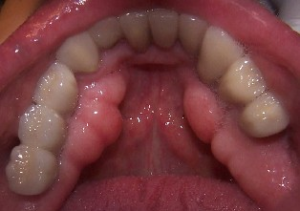The following is an actual conversation I had with a patient suffering from a toothache:
Dialogue with Mr. Smith (S)
Mr.S: I have a toothache Dr. Keshavarz
Me: Where is the pain?
Mr.S: It’s my upper right back tooth.
Me: How long has it been bothering you?
Mr. S: For about a week.
Me: What are your symptoms?eMr. S: It hurts quite a bit when I bite down.
Dental Examination of the patient
After examining Mr. Smith, I found:
- No decay – no sign of any infection involving the gums – the existing fillings look good – gums are generally in good condition, i.e., pink, tight and generally healthy – x-ray is normal; overall, everything looks normal.
Continued dialogue with the dental patient
Me: Do you have any other symptoms? i.e., any sensitivity to hot or cold stimuli? Or is it just when you bite down?
Mr. S: Only when I bite down and only on my right side.
Me: Have you had a cold lately? Any sinus problems?
Mr. S: I have a head cold, and my sinuses are stuffed.
Diagnosis
Mr. Smith, it looks like you have a sinus infection. You are having pain because the roots of your molar teeth protrude into the sinus (you can see this in the accompanying image).
Because your sinuses are congested and the roots of your molar teeth go into the sinus when you bite down, this puts pressure on the teeth, which is the discomfort you feel.
The roots of the teeth are embedded in the bone, and unique fibres surround the roots called Periodontal Ligament fibres or PDL fibres. These fibres have sensory receptors, meaning they can ‘react’ to stimuli. When you bite down, these fibres become compressed due to the congested sinuses, which are the pain and discomfort you feel.
It’s a little bit hard to understand this concept, but for our purposes, all you need to know is that if the sinuses are congested and the roots protrude into them…this can feel like tooth pain.
*In the next entry, I’ll explain the sinuses and how they relate to dental matters.
Dental Treatment
See your family doctor or an E.N.T. specialist, who will confirm the diagnosis and place you on an appropriate antibiotic to address the sinus congestion. If you still have pain after taking the antibiotic, make a follow-up appointment with your dental office to further investigate the problem.
If you are experiencing tooth pain and recognize any of the symptoms mentioned above, please do not hesitate to contact us at 905-791-3867.
Dr. F. Keshavarz Dentistry, Your Local Dental Office in Brampton Since 2001.







